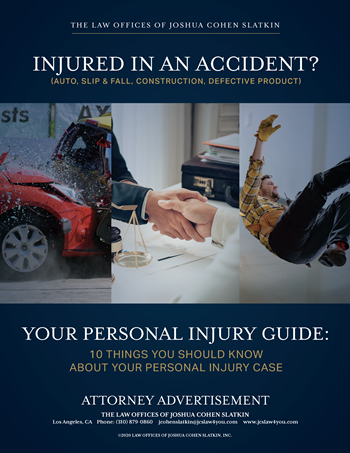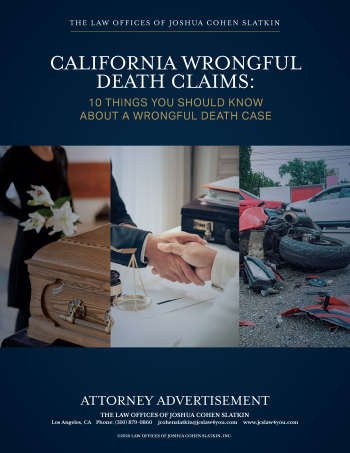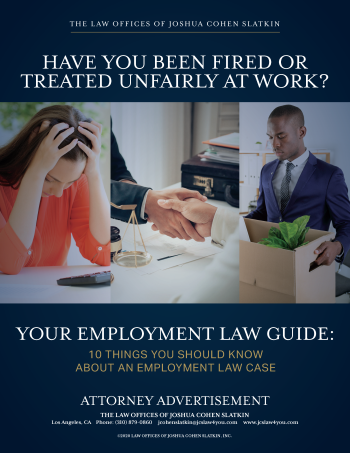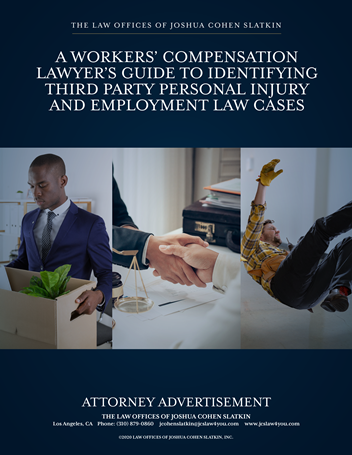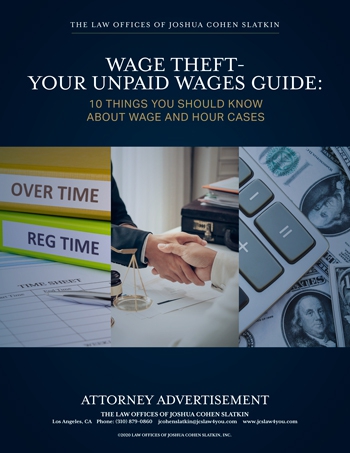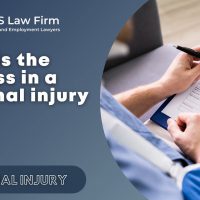We fully understand that the sudden loss of a family member is, without a doubt, one of life’s most tragic events. This is especially true when it results from someone else’s negligence or wrongdoing.
JCS Law Firm is here to fight for you and your family if a loved one has suffered a wrongful death. We have the skills and experience to investigate the details of your situation and create a plan of action to secure the justice your lost loved one deserves.
Available Monetary Damages in a Wrongful Death Action
Monetary damages in wrongful death cases can typically be divided into two categories: economic damages and non-economic damages that result from the decedent’s death.
Economic Damages directly attributable to the death are damages that include funeral and burial expenses and past medical expenses. Economic Damages attributable to the lost benefits or services are equivalent to what the surviving family members would have received had their loved not died. This includes loss of financial support that the decedent would have contributed to the family during his/her life expectancy, loss of gifts or benefits that the surviving family members would have received from the decedent and the reasonable value of household services that the decedent would have provided.
Non-economic damages in a wrongful death claim include loss of the decedent’s love, companionship, comfort, care, assistance, protection, affection and moral support. Non- economic damages may also include loss of the enjoyment of sexual relations for a surviving spouse. No fixed standard exists for deciding the amount of these non-economic damages. During a trial, jurors are instructed to use their judgment and common sense to decide a reasonable amount based on the evidence presented in the case.
Unlike personal injury claims, there are no economic damages for the surviving loved ones of the decedent for emotional distress and no damages available for the loved one’s pain and suffering. You also cannot be compensated for your grief, sorry or mental anguish resulting from the decedent’s death.
Who Can Bring a Wrongful Death Lawsuit in California?
Wrongful death impacts an entire family. These lawsuits allow the family to recover for economic loss and lost companionship (including loss of love and affection) caused by the death of a family member. Under California law for wrongful death, each heir identified in the California Code of Civil Procedure (“CCP”) Section 377.60 is allowed to recover monetary damages on his or her own behalf for the loss suffered due to the victim’s (decedent’s) death. Generally, the claim can be brought by the closest family members of the decedent, such as their spouse or children. California’s wrongful death statute also allows certain other people to bring a wrongful death claim depending on the circumstances.
If a minor child dies, the parents are usually the heirs who bring a wrongful death action. The same economic and non-economic damages are recoverable when the decedent is a minor. The non-economic damages are often higher than the economic damages in wrongful death actions on behalf of a minor child. The non-economic damages of loss of love and companionship are high. However, the economic damages to the heirs, such as financial support, will be lower unless the minor provided for their parents but there are still some economic damages for funeral and burial expenses.
All possible claimants must be joined together in a single wrongful death action. There cannot be more than one suit against the responsible party, so under the California “one action rule,” all claimants must join in one suit. One purpose of this rule is to avoid the responsible party having to defend more than one suit. Another purpose is to avoid inconsistent results that could occur from more than one action. Therefore, a claimant who is not joined as a party to a wrongful death suit could be barred from bringing a separate suit against the responsible party.
To avoid this unfair result, the heirs who file the suit have a mandatory duty to include all known heirs. Any heirs who intentionally omit a claimant may be responsible to such a claimant. Your lawyer needs to be informed of all possible heirs. For example, in the case of the wrongful death of an individual with no surviving children, both the surviving spouse and the surviving parents can bring a wrongful death claim, so they would all need to be included in the lawsuit, even if they are not represented by the same lawyers.
Meet Our Experienced Wrongful Death Legal Team
Request our free e-book, California Wrongful Death Claims: 10 Things to Know About a Wrongful Death Case, to learn more about your wrongful death case.
We have the understanding, compassion, and empathy to convey the extreme toll such a loss has had on you and your family. We work closely with top experts in the area to investigate the circumstances surrounding the death and ensure that you receive full compensation.
If you have lost a loved one in a tragic accident, contact JCS Law Firm for a free, no-obligation case evaluation.
Statute of Limitations in California Wrongful Death Claims
There are at least three statutes of limitations to be aware of in wrongful death claims in California. These are time deadlines to settle or take certain legal action.
- In most situations, lawsuits must be filed within two years of injury or death. [Calif. Code of Civil Procedure, Section 335.1.]
- If the loved one died due to health care provider negligence (medical malpractice), you have three years from the date of injury or one year after the plaintiff discovers (or through the use of reasonable diligence should have discovered) the injury, whichever occurs first.
- A government claim usually must be filed in the proper venue and forum within six months of the death. This would be necessary if the claim is based on any government tort liability, such as a car accident with a Los Angeles City vehicle or a claim of medical malpractice at a county or state hospital.
It is better to contact an attorney as soon as possible to discuss the tragic loss of your loved one, so you do not miss an important deadline that could forever bar your claim.
The Difference Between a Survival Action and a Wrongful Death Action
The main difference between wrongful death and a survivor action is that the survival action does not compensate the decedent’s family members for their losses. The survival action is intended to compensate the decedent’s heirs for economic losses which the actual decedent sustained due to the negligent/wrongful act of the responsible party prior to death.
These are damages incurred after the wrongful act but before the death. These damages may include medical bills, lost wages and personal property damage. Whenever the decedent survived for a sufficient period of time prior to dying, a surviving heir may bring a survival action to recover those economic damages. For example, in an auto accident, unless the decedent dies instantaneously, there is a period of time where the decedent is alive. The heirs to the estate will be able to bring a survival action for that period of time when the decedent was alive and can recover economic damages for the medical expenses of the ambulance and hospital for example. The heirs still cannot recover for the decedent’s pain and suffering during this time period.
One can bring both wrongful death and a survival action simultaneously. In California, punitive damages are available in a survival action but not in a wrongful death action.
Therefore, survival actions are often part of wrongful death actions due to the availability of punitive damages to punish the wrongdoer for their actions that caused the death.
If you lost a loved one because of someone else’s wrongdoing, negligence, or because they were killed by a defective product, you might be entitled to compensation for your loss. Together, we can hold those responsible for the death accountable for their actions.

